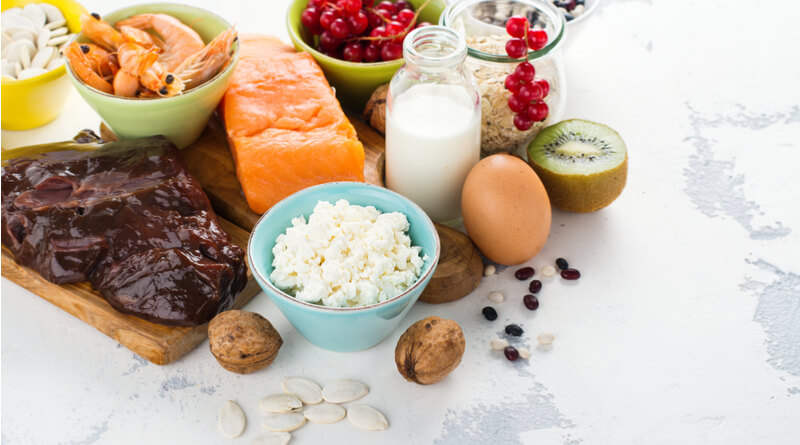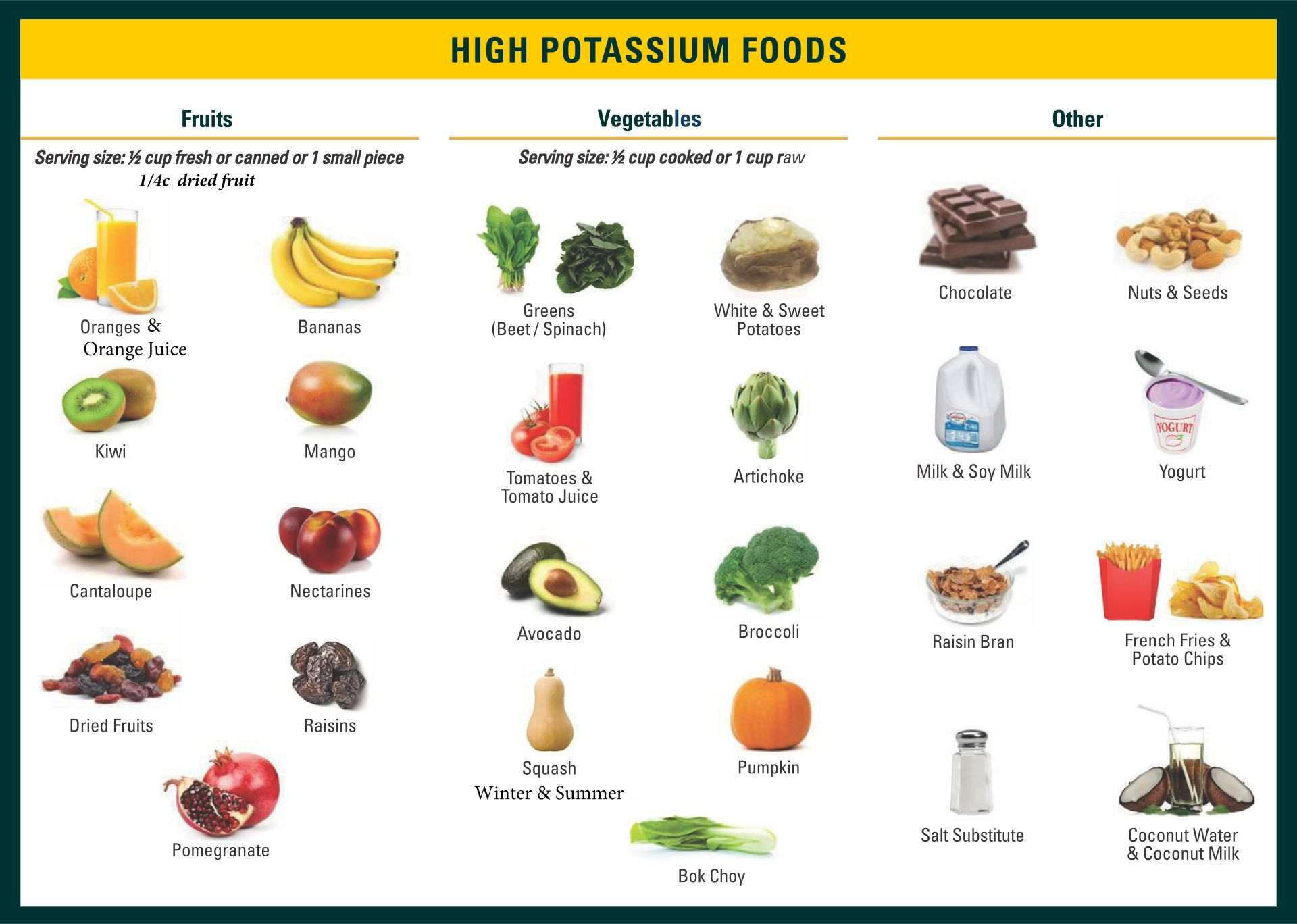Incorporating potassium-rich foods into your diet can have a positive impact on your blood pressure and electrolyte balance. Potassium is a vital mineral that plays a crucial role in regulating blood pressure and maintaining overall health. By understanding the importance of potassium and incorporating potassium-rich foods, you can take significant steps towards lowering your blood pressure and achieving a healthy electrolyte balance. In this article, we will explore the top five pieces of helpful information about incorporating potassium-rich foods for these purposes.
1, Importance of Potassium.
Potassium is an essential mineral that plays a crucial role in maintaining the overall health of our bodies. It is involved in various important functions that help keep our bodies functioning properly.
One of the key roles of potassium is regulating blood pressure. It works in opposition to sodium, which can increase blood pressure. By consuming foods rich in potassium, we can help lower blood pressure and reduce the risk of cardiovascular diseases.
Potassium is also an electrolyte, along with other minerals like sodium, chloride, calcium, and magnesium. These electrolytes are responsible for conducting electrical impulses in our bodies, which are necessary for nerve and muscle functions. Potassium helps maintain the balance of these electrolytes, ensuring our nerves and muscles work properly, including the vital muscle of the heart.
Maintaining the right balance of fluids in our bodies is another important function of potassium. It helps regulate the balance of fluids within and outside our cells, ensuring that our cells are properly hydrated and functioning optimally.
Additionally, potassium is involved in kidney function and urine production. It helps maintain the balance between fluids and electrolytes in our bodies, supporting the removal of waste and maintaining healthy kidney function.
While some research suggests that a high-potassium diet may have benefits for bone health, more studies are needed to establish a clear connection.
To ensure adequate potassium intake, it is recommended to consume a variety of potassium-rich foods like fruits, vegetables, dairy products, and legumes. However, it is always important to maintain a balanced diet and consult with a healthcare professional before making any significant dietary changes or starting any supplementation.
In conclusion, potassium is an essential mineral that plays a vital role in various bodily functions. It is important to ensure an adequate intake of potassium to support overall health and well-being.
2, Recommended Daily Intake.
The recommended daily intake of potassium can vary depending on factors like age, sex, and overall health. For most adults, the general guideline is to aim for around 2,500 to 3,000 milligrams (mg) of potassium per day.
If you're a teenager or child, you may need a bit less potassium than adults. It's a good idea to check with a doctor to find out the right amount for you.
Pregnant and breastfeeding women typically have higher nutritional needs, including potassium. So, during these stages, the recommended daily intake may be higher than the usual guideline.
It's important to remember that while potassium is important, too much of it can be harmful, especially for people with certain health conditions. If you have kidney problems or take certain medications, you may need to limit your potassium intake. It's always a good idea to talk to a healthcare professional to determine the right amount for you.
To get enough potassium, it's helpful to include potassium-rich foods in your diet. Fruits, vegetables, legumes, and dairy products are good sources of potassium. Eating a balanced diet with a variety of these foods can help you meet your potassium needs.
Remember, if you have any concerns about your potassium intake or specific health conditions, it's best to seek guidance from a healthcare professional or a registered dietitian. They can provide personalized advice based on your unique needs.
3, Potassium-Rich Foods.
There are many foods that are rich in potassium, which is a good thing because potassium is an important mineral for our bodies. Here are some foods that are great sources of potassium:
Bananas: They are easy to eat and a popular choice for potassium. You can enjoy them as a snack or add them to smoothies.
Oranges: Besides being rich in vitamin C, oranges also provide a good amount of potassium. They make for a refreshing snack or juice.
Avocados: Avocados are not only tasty but also a great source of healthy fats and potassium. You can use them in salads, sandwiches, or make delicious guacamole.
Sweet potatoes: These are not only delicious but also packed with potassium and other nutrients. You can bake or roast them for a tasty side dish.
Spinach: Spinach is a leafy green vegetable that is rich in potassium. You can use it in salads, soups, or sauté it as a side dish.
Tomatoes: Tomatoes are versatile and contain a good amount of potassium. They can be used in salads, sauces, or enjoyed fresh.
Yogurt: Yogurt is a creamy and nutritious food that also provides potassium. You can enjoy plain or Greek yogurt as a snack or add it to smoothies.
Salmon: Salmon is a tasty fish that is not only a good source of omega-3 fatty acids but also contains potassium. It can be grilled, baked, or pan-seared for a delicious meal.
Beans: Beans, like kidney beans, black beans, and lentils, are high in fiber, protein, and potassium. You can add them to soups, stews, or enjoy them as a side dish.
Nuts: Nuts such as almonds, pistachios, and cashews are not only crunchy and delicious but also provide potassium. They make for a convenient and healthy snack option.
Including these potassium-rich foods in your meals and snacks can help you maintain a good level of potassium in your body. Remember to enjoy them as part of a balanced diet for overall health and well-being.
4, DASH Diet.
The DASH diet, which stands for Dietary Approaches to Stop Hypertension, is a special eating plan designed to help lower blood pressure. It focuses on consuming foods that are rich in potassium, such as fruits, vegetables, whole grains, lean proteins, and low-fat dairy products. By following the DASH diet, you can promote a balanced intake of nutrients, including potassium, which can help keep your blood pressure under control.
Here are the key points about the DASH diet:
Fruits and vegetables: The DASH diet encourages eating plenty of fruits and vegetables. These foods are not only delicious but also high in potassium, vitamins, minerals, and fiber.
Whole grains: It's important to choose whole grains like brown rice, whole wheat bread, and whole grain cereals. These foods provide fiber and other essential nutrients while being low in sodium and unhealthy fats.
Lean proteins: The DASH diet recommends including lean protein sources like chicken, fish, beans, and legumes in your meals. These foods are lower in saturated fat compared to fatty meats.
Low-fat dairy products: Choosing low-fat dairy products such as skim milk, low-fat yogurt, and reduced-fat cheese is part of the DASH diet. These foods are good sources of calcium and potassium while being lower in saturated fat.
Limiting sodium: The DASH diet suggests reducing your sodium intake to help control blood pressure. This means avoiding high-sodium foods like processed foods, fast food, and salty snacks.
By following the DASH diet, you can enjoy a wide variety of nutritious foods while keeping your blood pressure in check. It's important to note that individual needs may vary, so it's always a good idea to consult with a healthcare professional or a registered dietitian before making any major changes to your diet. They can provide personalized advice based on your specific situation.
Remember, the DASH diet is not only beneficial for those with high blood pressure but also promotes overall health and well-being.
5, Other Factors to Consider.
When it comes to blood pressure regulation, it's important to consider a holistic approach that goes beyond just consuming potassium-rich foods. Here are some additional factors to keep in mind:
Reducing sodium intake: Along with increasing potassium intake, it's crucial to reduce sodium (salt) intake. High sodium levels can contribute to high blood pressure. Limiting processed foods, fast food, and adding less salt to meals can help lower sodium intake.
Maintaining a healthy weight: Being overweight or obese can increase the risk of high blood pressure. Maintaining a healthy weight through a balanced diet and regular physical activity can help manage blood pressure levels.
Engaging in regular physical activity: Regular exercise is beneficial for overall cardiovascular health, including blood pressure regulation. Aim for at least 150 minutes of moderate-intensity aerobic exercise or 75 minutes of vigorous-intensity exercise per week, along with muscle-strengthening activities.
Managing stress levels: Chronic stress can contribute to high blood pressure. Engaging in stress-reducing activities like meditation, deep breathing exercises, yoga, or engaging in hobbies can help manage stress and support blood pressure control.
Limiting alcohol consumption: Drinking excessive alcohol can raise blood pressure. If you choose to drink, it's important to do so in moderation. For men, this means up to two standard drinks per day, and for women, up to one standard drink per day.
By considering these factors alongside a potassium-rich diet, you can adopt a comprehensive approach to blood pressure control. Remember, it's always advisable to consult with a healthcare professional for personalized advice and recommendations, especially if you have specific health conditions or concerns. They can provide guidance tailored to your individual needs.
Incorporating potassium-rich foods into your daily diet is a valuable strategy for lowering blood pressure and maintaining electrolyte balance. By understanding the importance of potassium, recommended daily intakes, and the wide variety of potassium-rich foods available, you can make informed choices to support your cardiovascular health. The DASH diet, in particular, provides a structured approach to incorporating these foods. However, it's essential to remember that a comprehensive approach to managing blood pressure involves multiple factors, such as reducing sodium intake, maintaining a healthy weight, engaging in physical activity, managing stress, and limiting alcohol consumption. Consulting with a healthcare professional or registered dietitian can provide personalized guidance tailored to your specific needs. By embracing a well-balanced diet and adopting a healthy lifestyle, you can take proactive steps towards maintaining optimal blood pressure and overall well-being.





Comments
Post a Comment